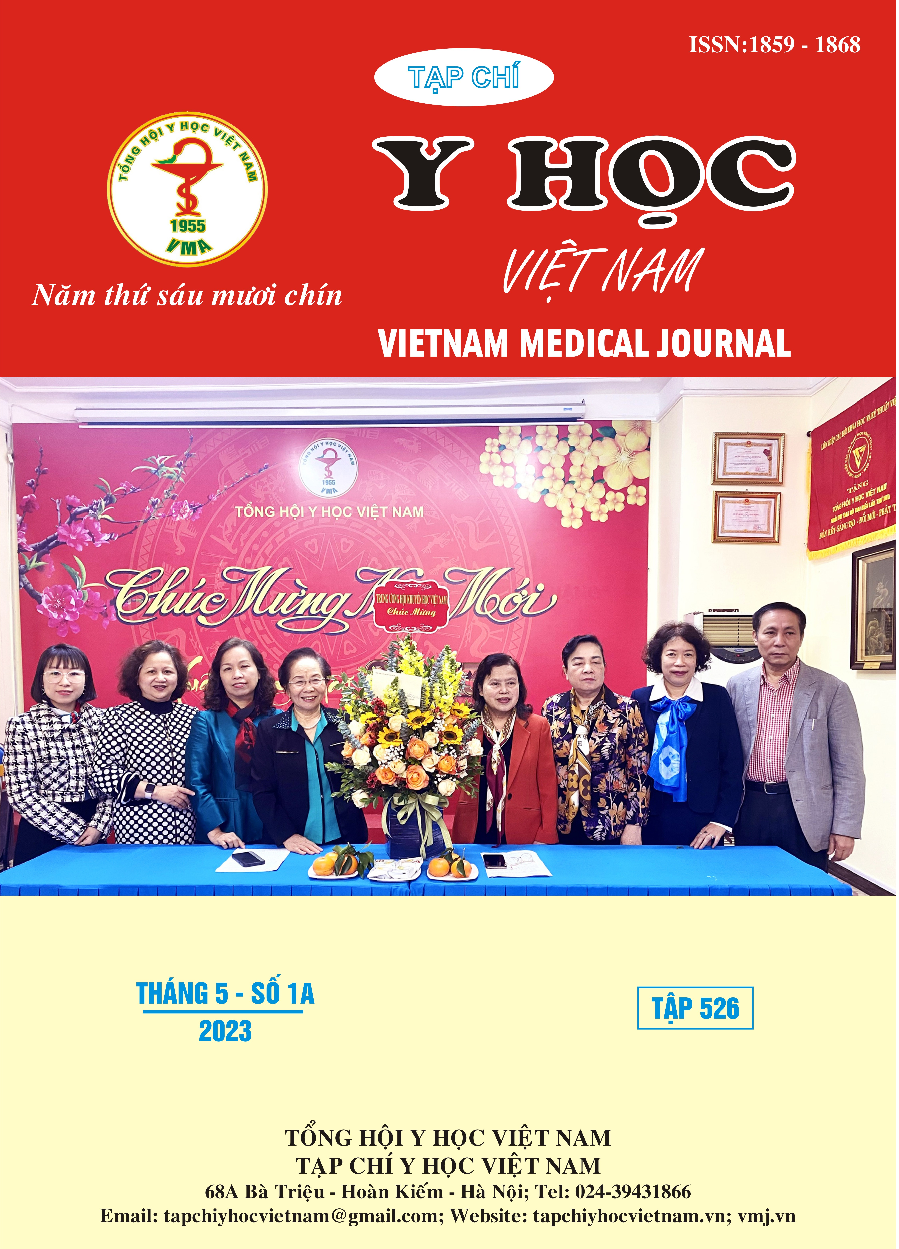SURVEY ON THE QUALITY OF LIFE IN PATIENTS WITH LARYNGEAL CANCER AFTER PARTIAL LARYNGECTOMY
Main Article Content
Abstract
Background: The methods of laryngectomy in partial laryngectomy for laryngeal cancer treatment have now been widely used in clinical practice. Treatment results also show that the success of partial laryngectomy is not only significant in the resolution of the disease, but also in preserving laryngeal function and improving quality of life. Objectives: To survey the quality of life of patients with laryngeal cancer after partial laryngectomy and to find out some factors related to the quality of life of the patients. Method: Retrospective study on 38 patients with partial laryngectomy at at University Medical center HCMC. Quality of life was assessed by the quality of life questionnaire EORTC-C30 and EORTC-H&N35. Result: The overall quality of life of patients after partial laryngectomy was slightly impaired with a mean score of 74.3 ± 24.9. In the functional aspect, there was only a slight decline in the social role. The symptom index of insomnia, voice disturbances, communication skills, sexual impairment, cough and feeling sick were all affected. The open surgery group had a mean score of voice disorders (52.9 ± 32.5) significantly higher than the laser microsurgery group (4.4 ± 6.1) with p < 0.005. Age factor > 60 increases symptoms of insomnia in this patient with p < 0.05. The group with adjuvant treatment was more affected in terms of social role, social integration and financial difficulties than the group without treatment with p < 0.05. Conclusion: The overall quality of life of patients after partial laryngectomy was slightly impaired.
Article Details
Keywords
Quality of life, partial laryngectomy, laryngeal cancer
References
2. International Agency for Research on cancer. The Global Cancer Observatory Globocan 2020. Viet Nam. 2021:1-2.
3. Souza, F.G.R., Santos, I.C., Bergmann, A. et al (2020). Quality of life after total laryngectomy: impact of different vocal rehabilitation methods in a middle income country. Health Qual Life Outcomes,18, 92.
4. Maniaci A, Lechien JR, Caruso S, et al (2021). Quality of Life After Total LaryngectomyVoice-Related Quality of Life After Total Laryngectomy: Systematic Review and Meta-Analysis. J Voice, S0892-1997(21)00298-8.
5. Massaro N, Verro B, Greco G et al (2021). Quality of Life with Voice Prosthesis after Total Laryngectomy. Iran J Otorhinolaryngol, 33 (118):301-309.
6. Kemps GJF, Krebbers I, Pilz W, et al (2020). Affective symptoms and swallow-specific quality of life in total laryngectomy patients. Head Neck, 42(11):3179-3187.
7. Gökmen MF, Büyükatalay ZÇ, Beton S et al (2020). Functional and Oncological Outcomes of Open Partial Laryngectomy vs. Transoral Laser Surgery in Supraglottic Larynx Cancer. Turk Arch Otorhinolaryngol, 58(4):227-233.
8. Anh The Bui, Keven Seung Yong Ji, Canh Tuan Pham et al (2018). Longitudinal evaluation of quality of life in laryngeal cancer patients treated with surgery. Int J Surg, 58:65-70.
9. Luo C, Lv K, Liu Q, et al (2021). Comparison of laser microsurgery and open partial laryngectomy for T1-2 laryngeal cancer treatment. Ann Transl Med, 9(6):464.
10. Roh J.L., Kim D.H., Kim S.I et al (2007). Quality of life and voice in patients after laser cordectomy for Tis and T1 glottic carcinomas. Head Neck, 29:1010-1016.


